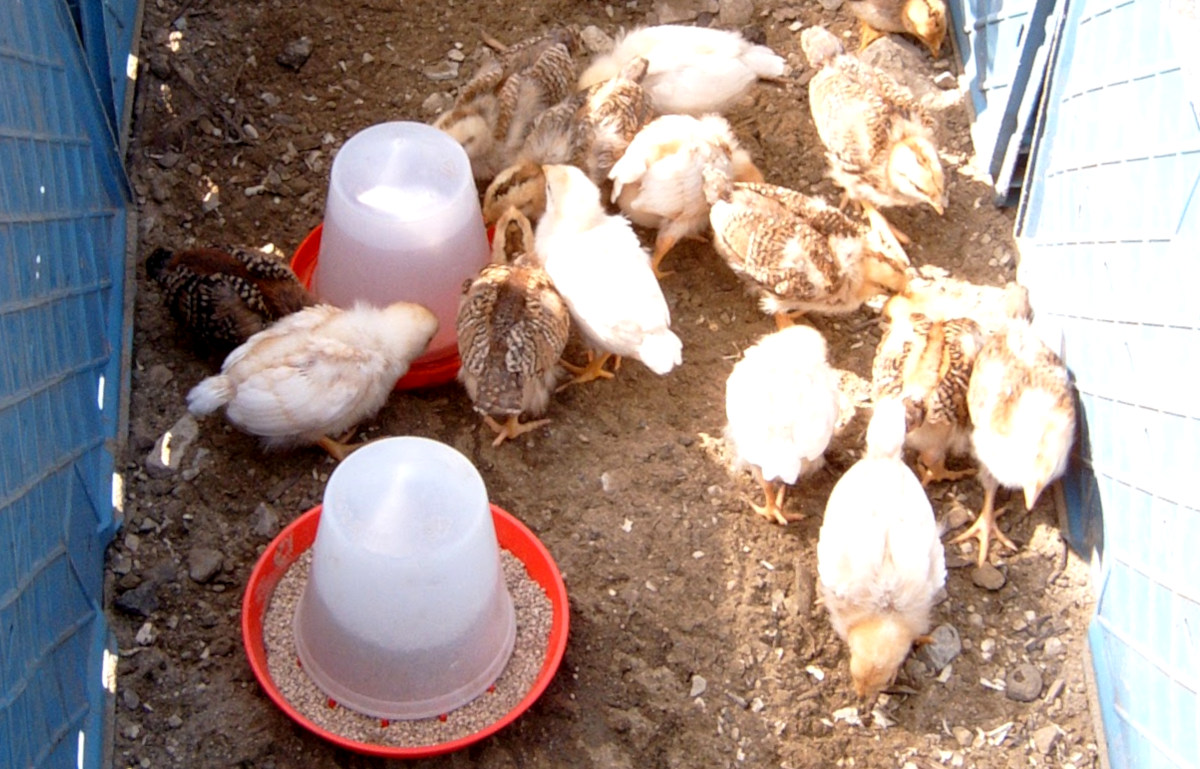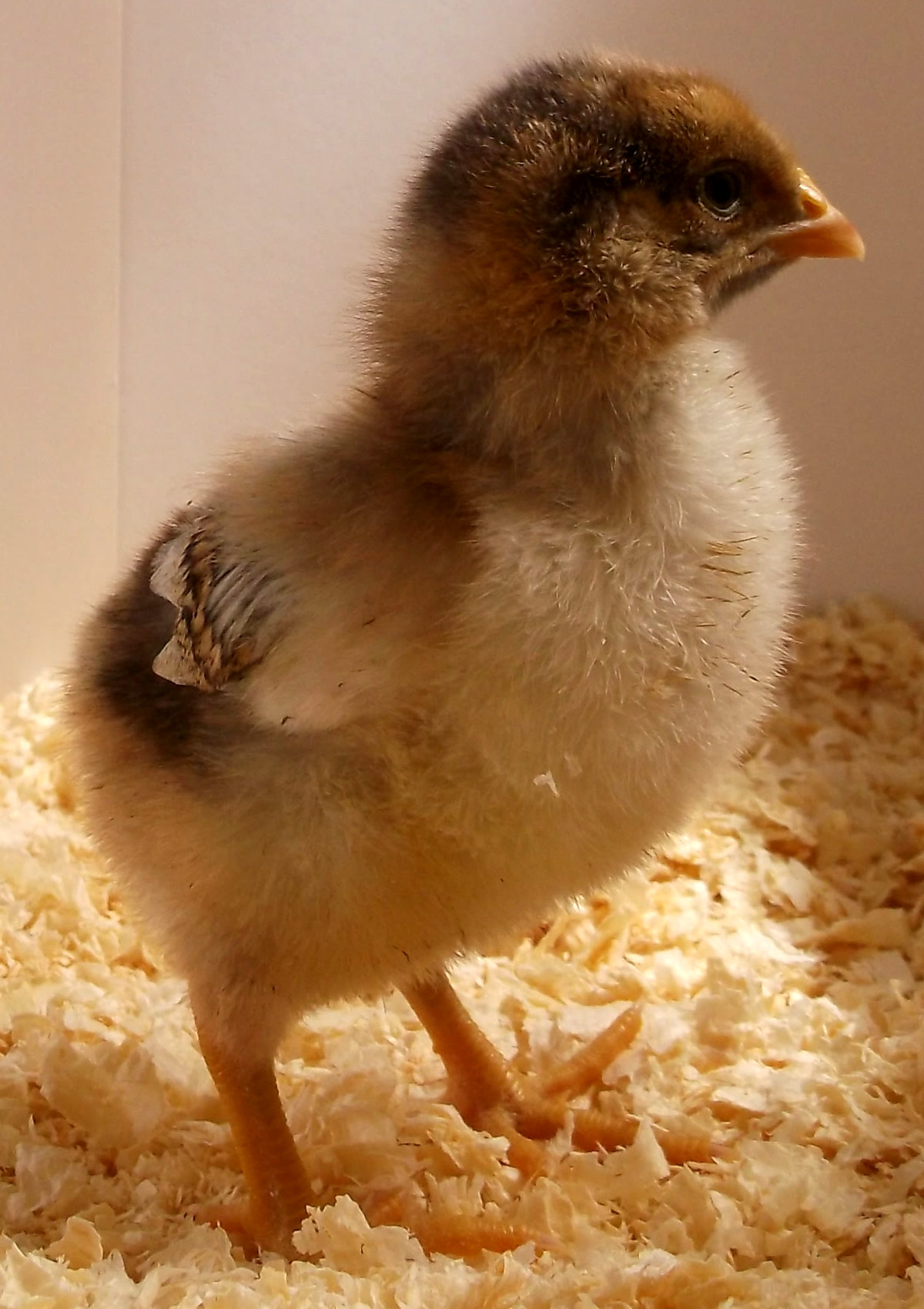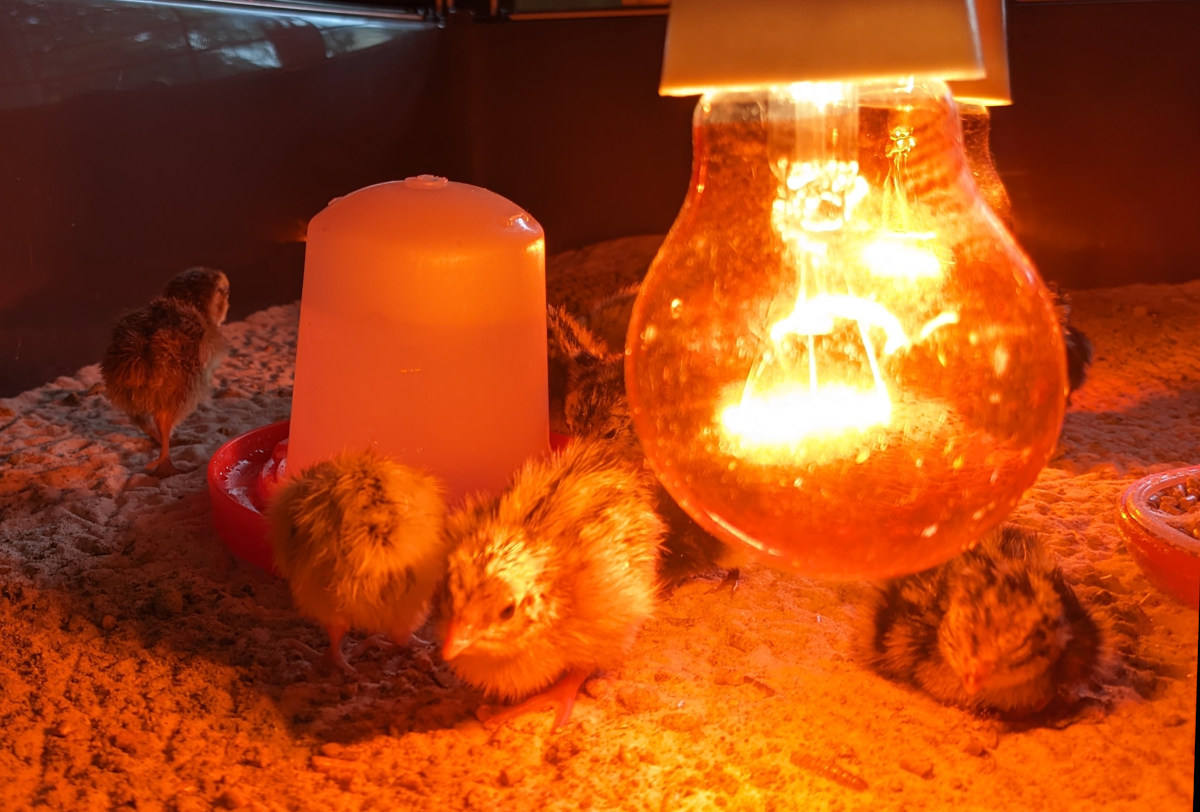How do you know if your baby chicks are healthy and happy?

Chicks will make soft, contented peeping sounds when they are comfortable and happy. Loud, constant distress calls may indicate a problem.
Here are some signs that your baby chicks are healthy and happy:
Activity level: Healthy chicks are active and curious. They will be moving around the brooder, exploring their surroundings, and pecking at the ground for food. Lethargic chicks may be a sign of illness or stress.
Appearance: Healthy chicks have bright eyes, a clean beak and vent, and smooth feathers. They should not be missing any feathers. Chicks with pasted vents, crusty eyes, or ruffled feathers may be sick or injured.
Appetite: Healthy chicks have a good appetite. They should be eating and drinking regularly. Chicks that are not eating or drinking enough may be sick or stressed.
Droppings: Healthy chicks have normal droppings. Their droppings should be firm and brown. Watery or green droppings may be a sign of illness.
Behaviour: Healthy chicks are social and interact well with each other. They should not be hiding or isolating themselves. Chicks that are picking at each other or feather plucking may be stressed or bored.
Below: A healthy baby chick with bright clean eyes, beak and vent and good feather development.

Additionally, observing proper nutrition, hygiene, and appropriate environmental conditions are crucial for the overall health and well-being of baby chicks.
In addition to watching my chicks regularly for these signs of health and happiness, I also weigh and assess them regularly to make sure they are gaining weight and feathering out appropriately.
I also clean their brooder regularly and provide them with fresh food and water every day.
If you notice any signs of illness or injury in your chicks, it is important to contact a veterinarian immediately. Early detection and treatment of diseases can help your chicks recover quickly and live long, healthy lives.
It would also be helpful to show you what an unhappy chick looks and sounds like. I have separated these two from their brood mates and their source of heat.
Below: An unhappy chick looks and sounds like this.
They are producing a very loud and piercing peep, a sure indication something is wrong.
What are good signs of health in baby chicks?
It is important to monitor your baby chicks closely for signs of illness, especially in the first few weeks of life.
Below: My latest batch of happy and healthy baby chicks.
By catching any problems early on, you can give your chicks the best chance of a happy and healthy life.
A healthy baby chick will look and behave in the following ways:
- They will be alert and active: They will be moving around, exploring their surroundings, and interacting with each other.
- Eating and drinking: A healthy chick has a good appetite and actively seeks food and water. It will peck at feed and drink water regularly.
- Balanced coordination: A healthy chick demonstrates good coordination and balance. It can walk steadily and maintain an upright posture.
- Clean beak and nostrils: The beak and nostrils of a healthy chick should be clean and free from any discharge or blockage.
- The down and any feathers will be smooth and glossy: A healthy chick has soft down covering its body and any feathers are usually evenly distributed and give the chick a plump appearance.
- Vocalisations: Chicks communicate with each other through soft chirping sounds. A healthy chick will engage in chirping, especially when interacting with other chicks or its mother.
- Good stance: Solid straight legs and toes with no deformations.
- Their eyes will be bright and clear: Its eyes are bright, clear, and alert. The eyes should not be watery or have any discharge.
- Their beaks should be clean, dry and free of debris: They should not be picking at their feathers or their skin.
- Good weight and musculature for age: Chicks grow and develop at predictable rates and slow growing chicks may have problems
- Their vent (the opening at the end of their abdomen) should be clean and dry: There should be no signs of pasty butt, diarrhoea or other discharge.
- Their breathing should be regular and even: They should not be gasping for air or wheezing.
- Responsive to stimuli: When approached or touched, a healthy chick will typically respond by moving away or chirping softly. It may also exhibit a natural instinct to peck at objects.
- Their body temperature should be normal: A healthy chick's body temperature should be around 100 degrees Fahrenheit. Hot chicks will be panting and cold chicks will be bleating loudly.
Keeping baby chicks happy:
In order to keep baby chicks happy you need to enrich their lives. Chicks are social animals and prefer to be kept in small groups and interaction is an important part of their development.
Below: The brooder should be a warm, safe place with enrichment. I also like to make sure my birds have room to run and flap their wings.

Tips for keeping your baby chicks healthy and happy:
- Provide them with a warm, draft-free environment. Cold id a big threat to the health and happiness of baby chicks.
- Offer them a variety of nutritious foods, including chick starter feed, fresh water, and grit.
- Clean their brooder regularly and remove any wet or soiled bedding.
- Monitor their health and behaviour closely.
- Vaccinate them against common chicken diseases.
- Spend time with them. Chicks enjoy interacting with their humans, so make sure to give them plenty of attention. Talk to them, pet them, and even let them out of their brooder to run around in your yard if the weather is warm and sunny.
- Baby chicks will begin to perch from around 4 weeks of age and you should provide them a log or something similar for them to settle on.
- Give your baby chicks a place to dust bathe. All chickens love to dust bathe and the young ones are no exception. Dust bathing is a social activity which helps them to keep their feathers clean and free of parasites. You can provide them with a dust bath by filling a shallow container with sand.
- A variety to their diet. While at least 95% of the diet of a chicks should be a suitable crumb you can give them some chopped greens, sprouted canola seed or the odd earthworm. One of my favourite games to play with my chicks is to give one a small earthworm and then watch the chaos unfold in the brooder as they all chase the chick that has the worm.
